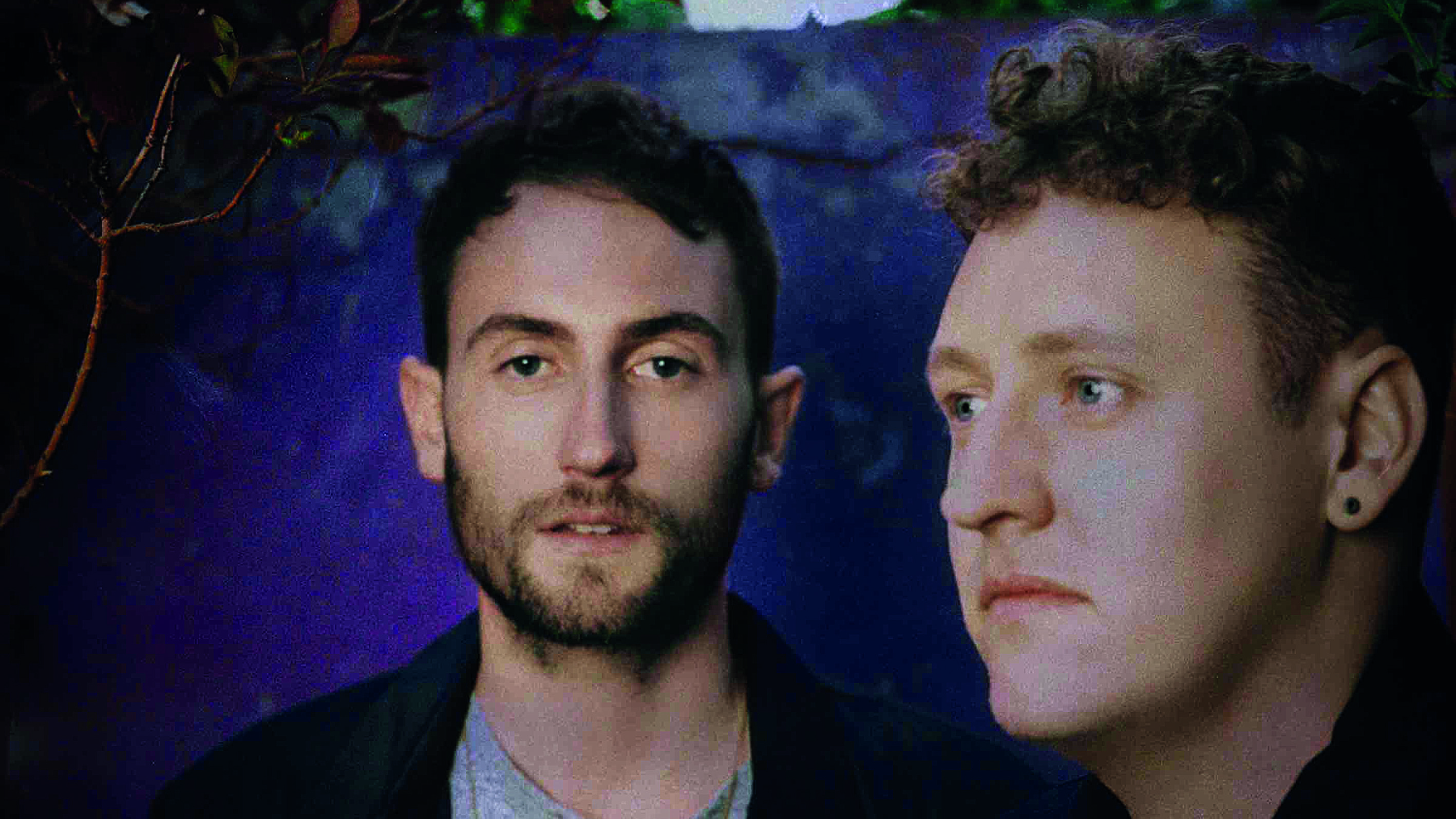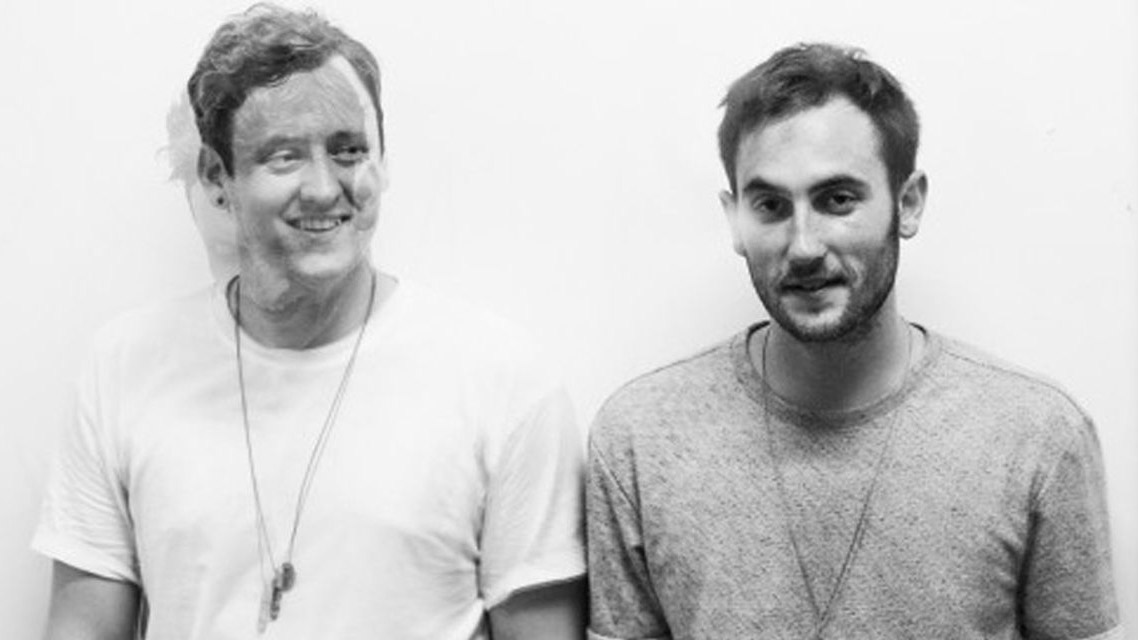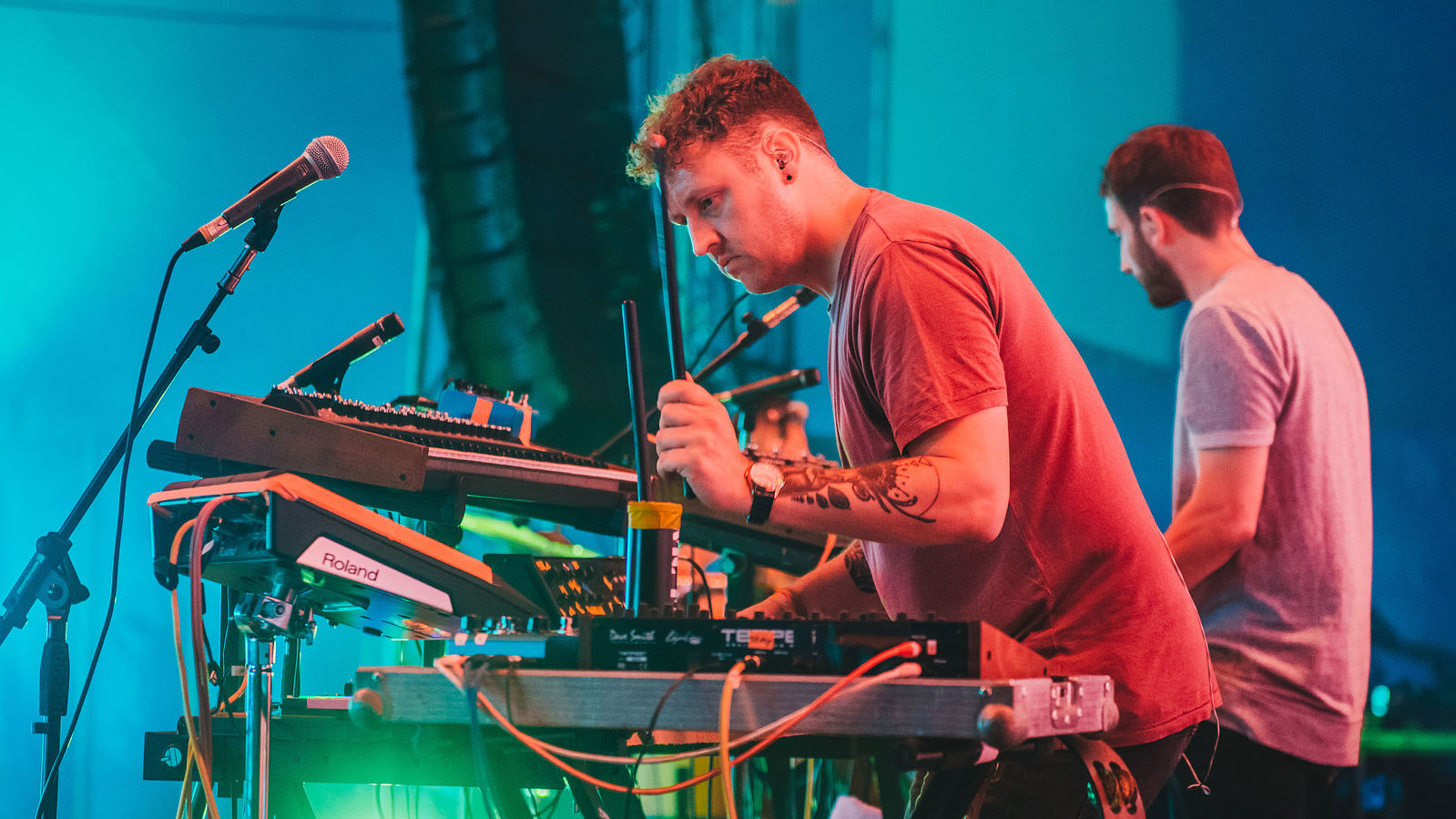Classic album: Maribou State on Portraits
Maribou state discuss their classic 2015 album Portraits

Want all the hottest music and gear news, reviews, deals, features and more, direct to your inbox? Sign up here.
You are now subscribed
Your newsletter sign-up was successful
For their debut full-length release the British electronic duo of Chris Davids and Liam Ivory, aka Maribou State, crafted a stunning soup of ethereal beats for their choice cast of guest vocalists.
Flitting effortlessly between house, 2-step, and deeply groovy downtempo dance music, each of these wonderfully sculpted songs, drenched in reverb and vinyl crackle, came off like vintage soul, skewed through the prism of some quite masterful Ableton programming.
The resulting sound was achingly beautiful, and pretty epic in scope. You’d never have guessed it was made in a shed. “It was The Shack In The Back,” says Liam. “A tiny thing behind my parents’ house. It wasn’t soundproofed, but that meant that it had really good acoustics.”
This unique space was ideal for their big ideas. Chris, at times, having drafted sketches at home, would bring them in to flesh out.
“One of us would start the tracks off with a loop,” he says. “I might bring drums, or a guitar lick. And then we’d sort of hash it out. It never ended up anywhere near where the original loop started, but just having that jump-off helped.”
Every track would have a different pathway, or journey. It completely depended on the track. It then all came together when we got the vocals on.
Liam agrees. “Every track would have a different pathway, or journey. It completely depended on the track. It then all came together when we got the vocals on.”
Their gorgeous rhythms would become perfect backings for singers like label mate, Jono McCleery, the likeminded Pedestrian, and Holly Walker, who turns out two of the album’s finest moments on Steal and the timeless Midas.
Want all the hottest music and gear news, reviews, deals, features and more, direct to your inbox? Sign up here.
Like the rest of the album, these tracks effortlessly serve up a kind of alt-soul, or electronic R&B, steeped in history, but always forward-thinking. It’s the kind of single-minded, deeply personal, and uniquely British stuff, that you can only get pottering away at in a shed at the bottom of your garden. “It sounded really good in there,” says Chris. “Funnily enough, we really struggled to get that sound back once we left the shed [laughs].”
So, here’s to shed producers everywhere. Find your special place, away from the maddening roar of modern life, and see what portraits you end up painting…

Home
Liam Ivory: “For a while this wasn’t the opening track. There was going to be an intro to the album. We had this little interlude-y thing that we wanted to work with, but the A&R at (Counter Records’ main label) Ninja Tune said, ‘You need to trim it down. The album should be ten tracks. Give them all your best moments’, so we cut it.”
Chris Davids: “Yeah. It was the second track so it got bumped to the first. It worked out quite well. For us, me especially, this is a road map for the rest of the album. It kind of gives you the sound, encapsulated, of what’s to come next.”
Liam: “It started with a guitar loop you had, from when you first started to learn to play the guitar.”
Chris: “The first thing I ever wrote on a guitar was the riff that’s in Home. That song just felt very homely.”
The Clown
Chris: “This features Pedestrian. We met Jack [Sibley] on Soundcloud. It was just before we wrote Portraits. We made quite a few tracks together and a few remixes. The Clown actually came about in Jack’s studio that was in Camden at the time. Underneath the railway arches.”
Liam: “It was in an old toilet! Someone had converted one into a studio. It was a mad space.”
Chris: “It was a completely different song when we started it. We had all the lyrics for it and all of the vocals. It was way slower, but felt really sluggish. Then, back in [our garden studio] The Shack, we ended up writing new piano chords, and getting another instrumental down, and then we ended up merging the two tracks.”
Liam: “It was a simple case of taking the vocals from the one track, laying them over the new one and going, ‘Oh, we’ve got a new song!’ [laughs].”
Rituals
Liam: “This was basically a result of buying a new keyboard. We got this Prophet-08 and there was just this patch on there, just one of the presets. It was basically a sequence arp [hums it], which was the main arp that runs through the verses.
“It came together so quickly, because we were so excited by this synth. We were just ripping through it and finding all these patches and just building and building on the song.”
Chris: “It was also the start of us really getting into sampling drum breaks, as well. We lifted one and layered it up with the Prophet. Me and Liam started it and then we brought in Jack [Pedestrian] again and added some vocals he’d laid down from another tune.”
Liam: “That was a common practice – it still is now – just to recycle stuff.”

Steal
Chris: “Holly Walker is on this one. It was probably one of the first tracks we did for the album. This and Rituals came around the same sort of time. We wrote those two even before we knew we were writing an album.
“It started from, again, a very simple loop that we made at my parents’ house – just a loop of a piano. Then we added some bass and drums and sent that to Holly.
“We’d only worked with her once before this, on a track called Tongue. She remotely wrote the verses to it. Then we worked out the chorus together, and she fleshed out all the chorus chords.”
Liam: “It was very collaborative. Compared to others, anyway, like Midas. She came to the studio. From then on it was all three of us that totally finished it.”
Wallflower
Chris: “This was the last track we wrote on the record. We had initially finished the album – we had our ten tracks and handed it in. Then our A&R at the label, Adrian [Kemp], came back and was like, ‘OK, guys. I know you think this is done, and it is. But just squeeze one more track out, if you can…’
“It was just for fun, essentially. It was like ‘Let’s play around and make a tune,’ regardless of if it felt like it would fit on the record. There were no restrictions. It came together really naturally, and it did end up fitting.”
Liam: “I think we ended up putting this together in one day, pretty much. It was another Prophet-08 patch.”
Chris: “It was something off there. Not a preset. Liam might have made a patch, and we wanted to create something that was like Blinded By The Lights – you know, that old Streets tune? That kinda pulsing, hypnotic, feel. So we made that.”
Liam: “We’d also just received a pack of new breaks off Jack [Pedestrian]. That’s where the drums were from.”

Say More
Chris: “Jono McCleery is on this one. We were just big fans. He was on Ninja Tune as well. He had a track called Darkest Light that we really liked. We fell in love with his voice and got introduced through Ninja.”
Liam: “We were big fans. And the Ninjas were saying we needed some slightly more high-profile guests so we asked them to reach out to Jono.
“We had the backing track made and sent it over for him. He actually sent a video over, and he did that vocal in one take from start to finish and absolutely nailed it. Yeah, he’s an incredible singer.”
Chris: “Again, it was quite fluid. We wanted to work with him. Started a backing track. He liked it. He literally delivered the vocal in one and it was done. What a pro.”
Raincoats
Liam: “I remember this being one of the most arduous songs to make.”
Chris: “Yeah. It was the one that was the hardest to finish. It was one of our favourites, though, when we were making the record. It was very Burial-inspired, wasn’t it?”
Liam: “This tune, actually, was made kinda start to finish, in terms of the timeline of it. It wasn’t like we had a little section and thought, ‘Yeah, that can be the chorus’.
“We literally worked through it, chronologically. That’s why I remember the ending being such a fucker. We just couldn’t get that final drop to connect.
“The strings at the end were the final thing, bolted on.”
Chris: “It started with those big reverbed drums, inspired by The Boxer by Simon & Garfunkel. We’d watched a documentary and they said how they did that. Obviously they did that in a massive hall, though, and me and Liam were just doing it with plugins [laughs].”
Midas
Liam: “This came together quite naturally. It was just some piano chords. Chris did them, and then we just kinda built up the backing track and sent it over to Holly to sing on.
“She sent back three different vocals. This is before we properly knew her. Which is kinda bad, thinking back to it, because it’s a cold way to work.”
Chris: “But, we just couldn’t get them to sit right. So we hired her this Neumann U87 mic and sent it to her.
“Liam and me were very naïve to how a lot of vocalists like to work. I know it’s different for everyone, but we wrote the lyrics, initially, and sent them over to her. She went, ‘I’m not gonna sing the lyrics that you guys have written. It’s my vocal’ [laughs].”
“In the aforementioned, ‘Shack In The Back’, we had a laptop, monitors, and then a just a few keyboards like the [Dave Smith Instruments] Prophet 08, a Korg MS-2000, and a Nord Stage.
“Then it was guitar, an amp, one of those [Kustom] Defenders. It was really stripped back. We ended up getting a stage piano as well – the [Yamaha] Clavinova. We had TLA Ebony preamps, and the Lexicon MX300 reverb unit, too. But that was mostly it. Oh, and we hired Holly Walker a Neumann U87 for Midas, as mentioned.
“There was a little sub-mixer thing, too, and it was all done in Ableton Live. A long time ago we used to make music on Logic. Then we made the switch to Ableton and never looked back. Whenever we meet anyone who works on Logic now, we forcefully try and persuade them to come over to Ableton [laughs]. We’ve been successful a few times!”
Natural Fools
Chris: “This was done pretty early on. I did most of the track, pretty much on my own at my place. Other than, like, the ending.
“I made a bit of a ghost structure of the track, with the first section with the guitar. Basically it was verse, bass, guitar, harmony and drums.”
Liam: “Chris put the whole thing together and showed it to me, and I was obviously blown away. Then we peppered in all the samples and bits and bobs, and then stuck on that ‘clubby’ outro on the end.”
Chris: “I do remember at the time that when I showed it to you, you were like, ‘Yeah, it’s cool. But it’s a bit like playing Guitar Hero’ [laughs].”
Varkala
Chris: “This was just Liam and I together with this one drone type of thing on a loop. Then we just set about improvising the whole thing.
Varkala is a place I visited in India while writing the album and there was a Hendrix cover band playing there.
“I captured a bit of them, with a field recorder, and that’s one of the things that’s looped during the beginning of that track. We just named the track after the place where the bit of that recording came from.”
Liam: “We weren’t too great at naming things.”
Chris: “Unless there’s a distinct reason, or vision behind the track, it’s always hard to name songs. I guess a lot of the time if you have lyrics or a vocalist, it’s simpler.”


Future Music is the number one magazine for today's producers. Packed with technique and technology we'll help you make great new music. All-access artist interviews, in-depth gear reviews, essential production tutorials and much more. Every marvellous monthly edition features reliable reviews of the latest and greatest hardware and software technology and techniques, unparalleled advice, in-depth interviews, sensational free samples and so much more to improve the experience and outcome of your music-making.
